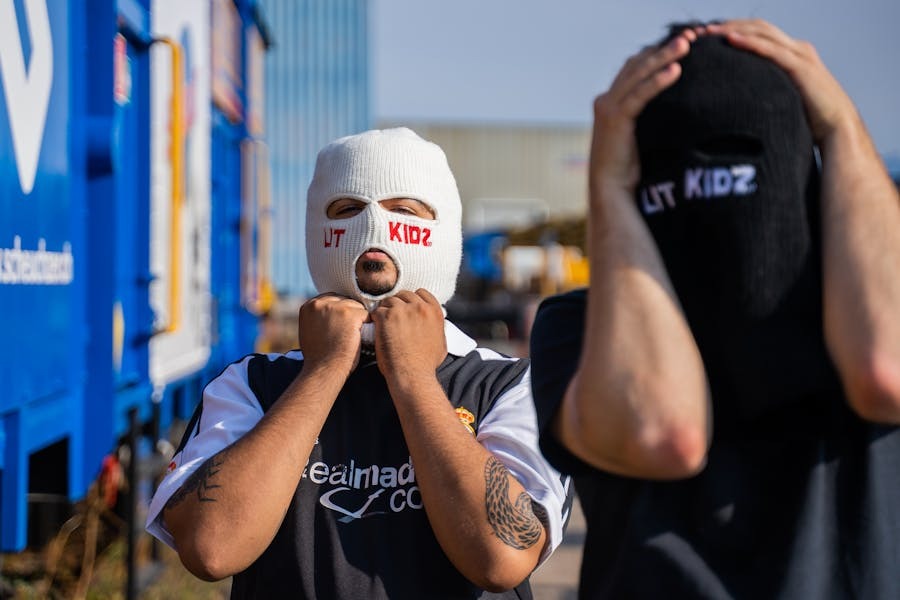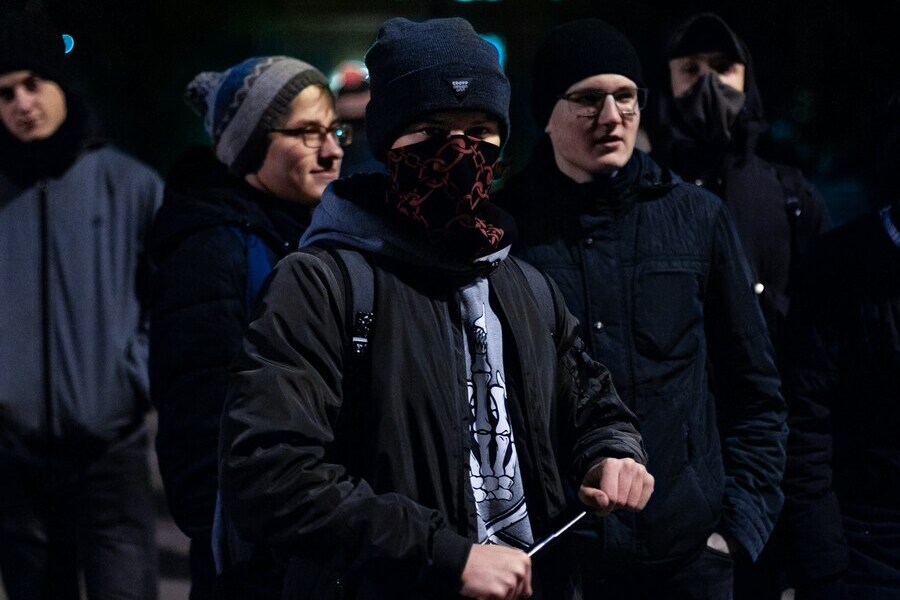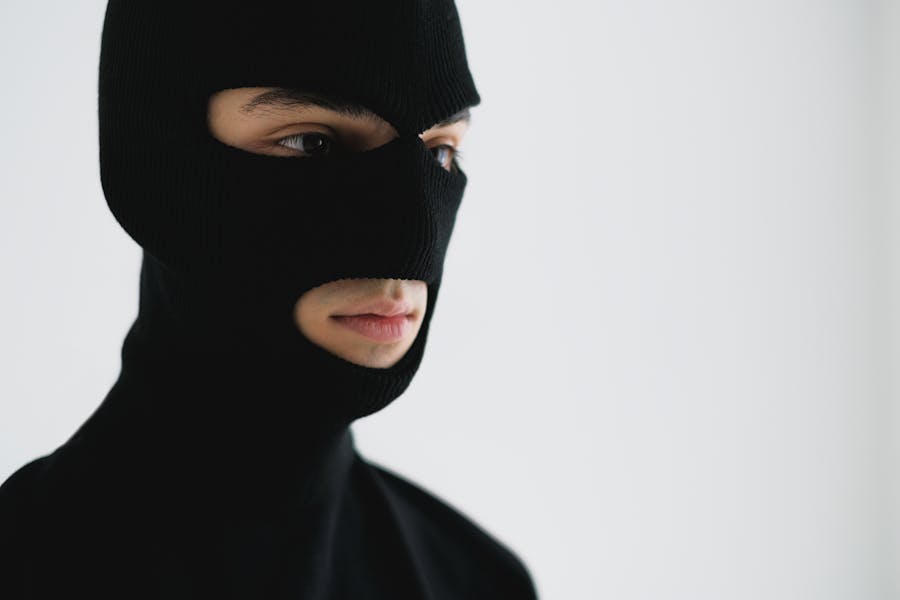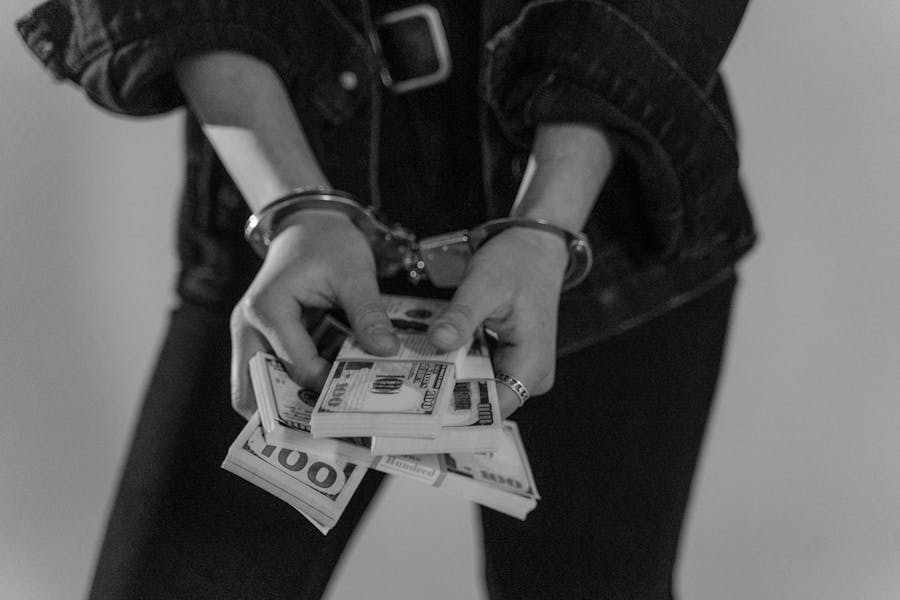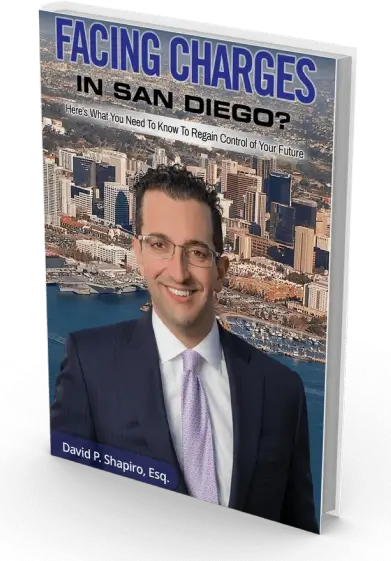Gang Enhancements (Penal Code § 186.22) in California
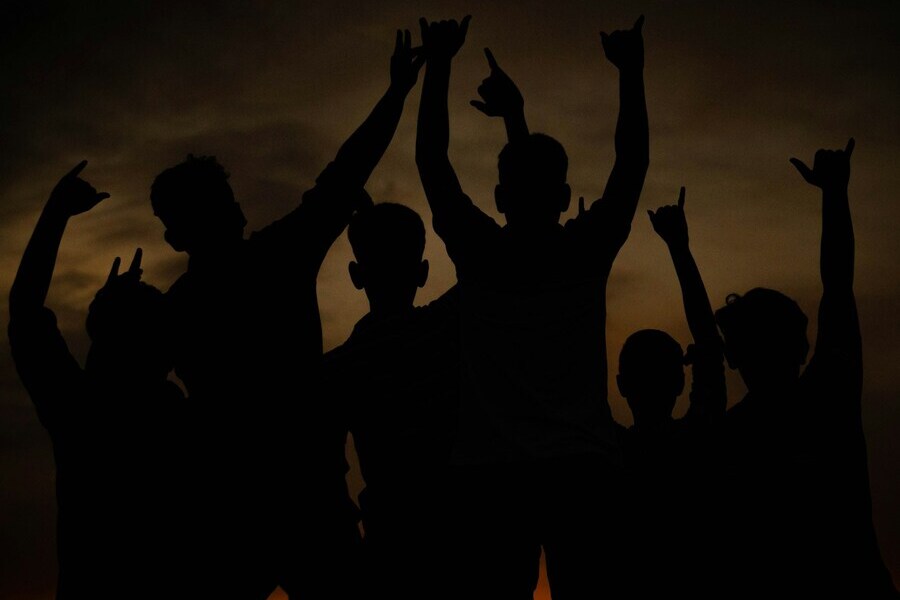
In California’s criminal justice system, few charges carry the same weight and severe consequences as gang enhancements under Penal Code § 186.22. These enhancements can dramatically increase prison sentences, turning what might have been a relatively minor offense into a case with life-altering penalties. If you or a loved one is facing charges with gang enhancements, understanding what you’re up against is crucial.
At David P. Shapiro Criminal Defense Attorneys, we’ve represented numerous clients facing gang allegations in San Diego and Chula Vista. This guide provides essential information about California’s gang enhancement laws, recent changes, and how an experienced defense attorney can protect your rights.
What Are Gang Enhancements Under California Law?
California Penal Code § 186.22, part of the California Street Terrorism Enforcement and Prevention (STEP) Act, allows prosecutors to seek additional penalties for crimes committed in connection with criminal street gangs. The law creates two primary types of gang-related offenses:
- Active participation in a criminal street gang (PC § 186.22(a))
- Committing a felony for the benefit of, at the direction of, or in association with a criminal street gang (PC § 186.22(b))
These are not separate crimes but rather enhancements that add significant time to the sentence for an underlying offense.
Active Participation in a Criminal Street Gang (PC § 186.22(a))
Under § 186.22(a), a person who “actively participates in a criminal street gang with knowledge that its members engage in, or have engaged in, a pattern of criminal gang activity, and who willfully promotes, furthers, or assists in felonious criminal conduct by members of that gang” can be punished by:
- Up to one year in county jail, or
- 16 months, 2 years, or 3 years in state prison
This subsection essentially criminalizes being an active gang member who helps other gang members commit felonies. Importantly, under § 186.22(j), the prosecution doesn’t need to prove that the person was a formal gang member or devoted substantial time to the gang—just that they actively participated.
Committing a Felony to Benefit a Gang (PC § 186.22(b))
Section 186.22(b) is the more commonly used and more severe gang enhancement. It applies when someone commits a felony “for the benefit of, at the direction of, or in association with a criminal street gang, with the specific intent to promote, further, or assist in criminal conduct by gang members.”
The penalties added under this enhancement depend on the underlying felony:
- Standard enhancement (PC § 186.22(b)(1)(A)): An additional 2, 3, or 4 years
- Serious felonies (PC § 186.22(b)(1)(B)): An additional 5 years
- Violent felonies (PC § 186.22(b)(1)(C)): An additional 10 years
- Specified felonies (PC § 186.22(b)(4)): An indeterminate life sentence with varying minimum terms before parole eligibility
For life felonies not specified in § 186.22(b)(4), the gang enhancement means no parole eligibility until the person has served at least 15 calendar years (PC § 186.22(b)(5)).
What Constitutes a “Criminal Street Gang”?
For gang enhancements to apply, the prosecution must prove the existence of a “criminal street gang.” California Penal Code § 186.22(f) defines a criminal street gang as:
“An ongoing, organized association or group of three or more persons, whether formal or informal, having as one of its primary activities the commission of one or more of the criminal acts enumerated in subdivision (e), having a common name or common identifying sign or symbol, and whose members collectively engage in, or have engaged in, a pattern of criminal gang activity.”
This definition has several important components:
- Ongoing organization: The gang must be an established, continuing entity
- Three or more persons: There must be at least three people involved
- Primary activities: One of the group’s main activities must be committing specific crimes listed in § 186.22(e)
- Common identifying features: The gang must have a name, sign, or symbol
- Pattern of criminal gang activity: Members must have engaged in specific criminal conduct
What Is a “Pattern of Criminal Gang Activity”?
Under § 186.22(e)(1), a “pattern of criminal gang activity” means the commission of, attempted commission of, conspiracy to commit, or solicitation of two or more specified offenses, provided:
- At least one offense occurred after the effective date of the law
- The last offense occurred within three years of the prior offense
- The offenses were committed on separate occasions or by two or more gang members
- The offenses commonly benefited the gang, and
- The common benefit from the offenses is more than reputational
The law lists numerous qualifying crimes in § 186.22(e)(1)(A) through (Z), including assault with a deadly weapon, robbery, homicide, drug sales, shooting at an inhabited dwelling, arson, witness intimidation, theft, burglary, rape, and many others.
Importantly, the currently charged offense cannot be used to establish the pattern of criminal gang activity (§ 186.22(e)(2)).
Recent Changes to California’s Gang Enhancement Laws
California’s gang enhancement laws have undergone significant changes in recent years. In 2021, Assembly Bill 333 (the STEP Forward Act) made substantial modifications to Penal Code § 186.22, which took effect on January 1, 2022, with some provisions becoming operative on January 1, 2023.
Key changes include:
- Stricter definition of “benefit”: The law now requires that the benefit to the gang be more than merely reputational (§ 186.22(g))
- More specific pattern requirements: The prosecution must now prove that the predicate offenses commonly benefited the gang in a way that was more than reputational
- Current offense exclusion: The currently charged offense cannot be used to establish the pattern of criminal gang activity
- Temporal requirements: Predicate offenses must have occurred within three years of each other and the current offense
- Procedural changes: For cases charged with gang enhancements, the law now requires bifurcated trials where the underlying offense is tried first, followed by a separate proceeding on the gang enhancement if the defendant is found guilty
These changes have made it more difficult for prosecutors to prove gang enhancements, providing new avenues for defense.
Defending Against Gang Enhancement Allegations
Given the severe consequences of gang enhancements, effective defense strategies are crucial. Some common defenses include:
Challenging Gang Membership or Association
One approach is to contest the claim that you are or were an active participant in a gang. Even if you know people in gangs, casual association doesn’t constitute active participation.
Disputing the “Criminal Street Gang” Definition
The prosecution must prove all elements of a criminal street gang as defined by the statute. Your attorney may challenge whether the alleged gang meets all the statutory requirements, such as having the required primary activities or pattern of criminal gang activity.
Contesting the Benefit to the Gang
Since the 2021 reforms, prosecutors must prove that the crime provided a common benefit to the gang that was more than reputational. Your attorney may argue that any benefit was merely personal or that there was no specific intent to benefit the gang.
Challenging Expert Testimony
Gang cases often rely heavily on testimony from police “gang experts.” These experts may base their opinions on questionable sources, outdated information, or stereotypes. A skilled defense attorney will scrutinize and challenge this testimony.
Constitutional Challenges
Gang enhancements and evidence gathering in gang cases can raise serious constitutional issues, including freedom of association, due process concerns, and equal protection problems. Your attorney may identify constitutional violations in how evidence was gathered or how the enhancements are being applied.
Seeking Judicial Discretion
Under § 186.22(h), the court has discretion to strike the additional punishment for gang enhancements in “unusual cases where the interests of justice would best be served.” An experienced attorney can present compelling reasons why your case warrants this discretion.
The Collateral Consequences of Gang Enhancements
Beyond the direct penalties, gang enhancements can have far-reaching collateral consequences:
- Immigration consequences: For non-citizens, gang-related convictions can be particularly devastating, often leading to deportation and permanent inadmissibility
- Employment barriers: Gang-related convictions create significant obstacles to employment, as many employers are unwilling to hire individuals with gang associations
- Housing challenges: Finding housing becomes more difficult with a gang-related conviction, as landlords often reject applicants with such criminal records
- Enhanced monitoring: Those with gang-related convictions often face increased scrutiny from law enforcement, even after serving their sentences
- Inclusion in gang databases: A conviction may lead to inclusion in gang databases, subjecting you to ongoing monitoring and potential harassment
Why You Need an Experienced Gang Enhancement Defense Attorney
Gang enhancement cases present unique challenges that require specialized knowledge and experience:
- The technical definitions of gangs and gang activity require deep familiarity with the statute and case law
- Recent legislative changes have created new defense opportunities that an experienced attorney can leverage
- Effective challenges to gang expert testimony require specialized knowledge
- These cases often involve complex evidentiary issues that demand skilled litigation
- The stakes are extraordinarily high, with potential sentences extending to decades or life
How David P. Shapiro Criminal Defense Attorneys Can Help
Our San Diego criminal defense team brings specific advantages to gang enhancement cases:
- In-depth knowledge of gang enhancement laws: We stay current on the latest statutory changes and case law developments
- Experience challenging gang evidence: We know how to effectively challenge gang expert testimony and documentary evidence
- Thorough investigation capabilities: We conduct independent investigations to counter prosecution claims about gang membership and activities
- Strategic defense planning: We develop comprehensive defense strategies tailored to the specific facts of your case
- Skillful litigation: We vigorously contest gang allegations at every stage of the proceedings
- Negotiation skills: When appropriate, we engage in strategic negotiations to have gang enhancements dropped or reduced
We understand that being labeled a gang member can be both inaccurate and deeply stigmatizing. Our approach focuses on humanizing our clients and presenting a complete picture that goes beyond stereotypes and assumptions.
Frequently Asked Questions About Gang Enhancements
Can gang enhancements be applied to any crime?
No. Gang enhancements under § 186.22(b) can only be applied to felonies. However, § 186.22(d) allows for enhanced punishment of certain misdemeanors committed for the benefit of a gang.
If I know gang members but am not in a gang, can I still face gang enhancements?
Potentially. The prosecution must prove you “actively participated” in the gang, which doesn’t require formal membership. However, merely knowing gang members is not sufficient—there must be evidence of your active involvement.
Can gang enhancements be stricken or dismissed?
Yes. Under § 186.22(h), the court has discretion to strike the additional punishment in “unusual cases where the interests of justice would best be served.” Additionally, if the prosecution fails to prove the required elements, the enhancement should be dismissed.
How do recent changes to the law affect existing cases?
Many of the changes enacted by Assembly Bill 333 apply retroactively to cases that were not yet final when the law took effect. If you were previously convicted with gang enhancements, you might be eligible for resentencing.
Contact a San Diego Gang Enhancement Defense Attorney Today
If you or someone you love is facing criminal charges in California, swift action is imperative. The penalties can be life altering and long lasting. Give us a call today to set up a case evaluation with one of our attorneys and learn how to best protect your freedom and future.
Too often, we see clients who “wait and see,” unsure of the legal landscape ahead, only for charges to escalate. They then find themselves backpedaling into a bad defense and an even worse lawyer. Don’t let that happen to you. Protect your freedom. Protect your future. Know your rights.
The contents of this article and blog are meant for informational and marketing purposes only and do not constitute legal advice. Viewing and/or use of the blog does not form an attorney-client relationship. No statements in this post are a guarantee, warranty, or prediction of a particular result in your case.

